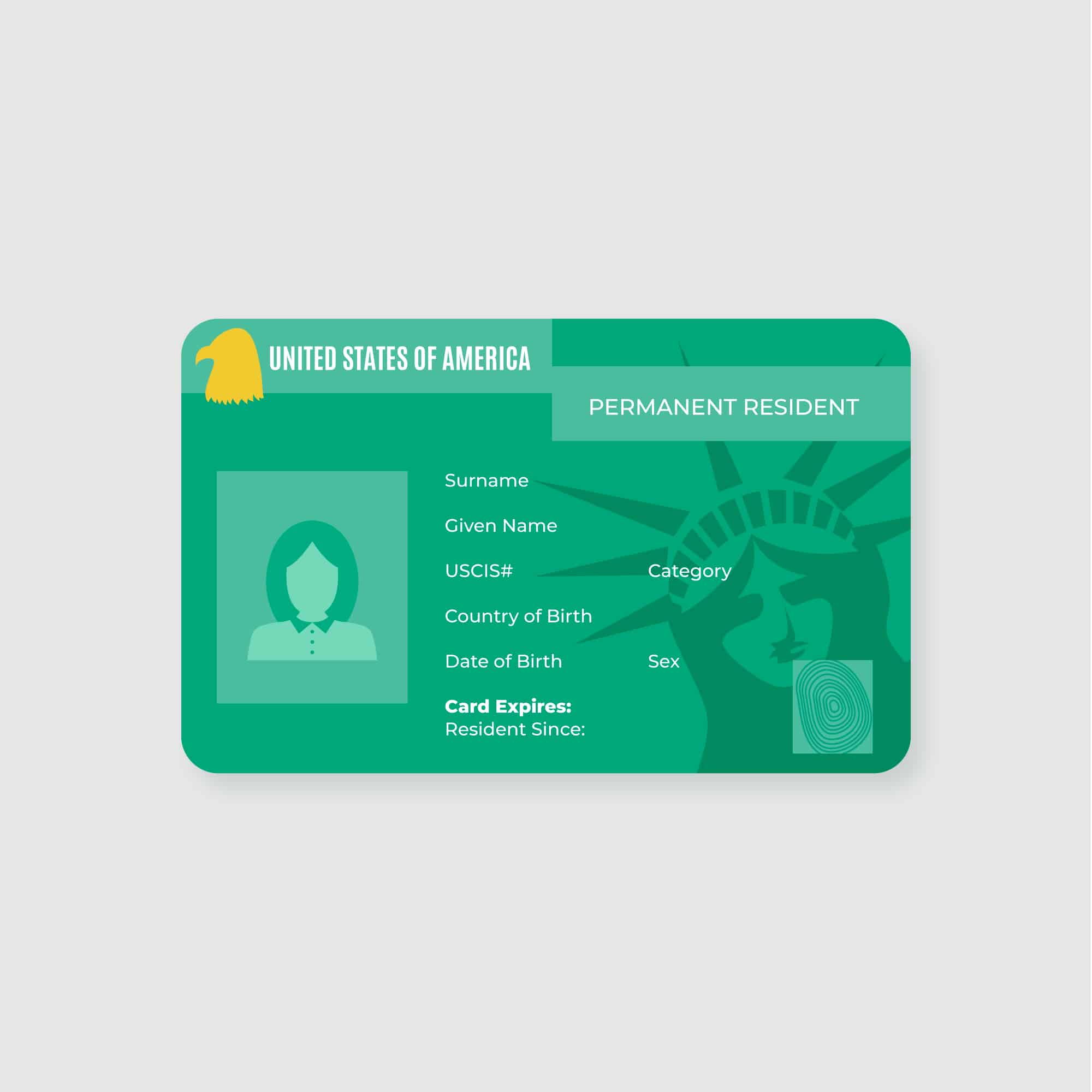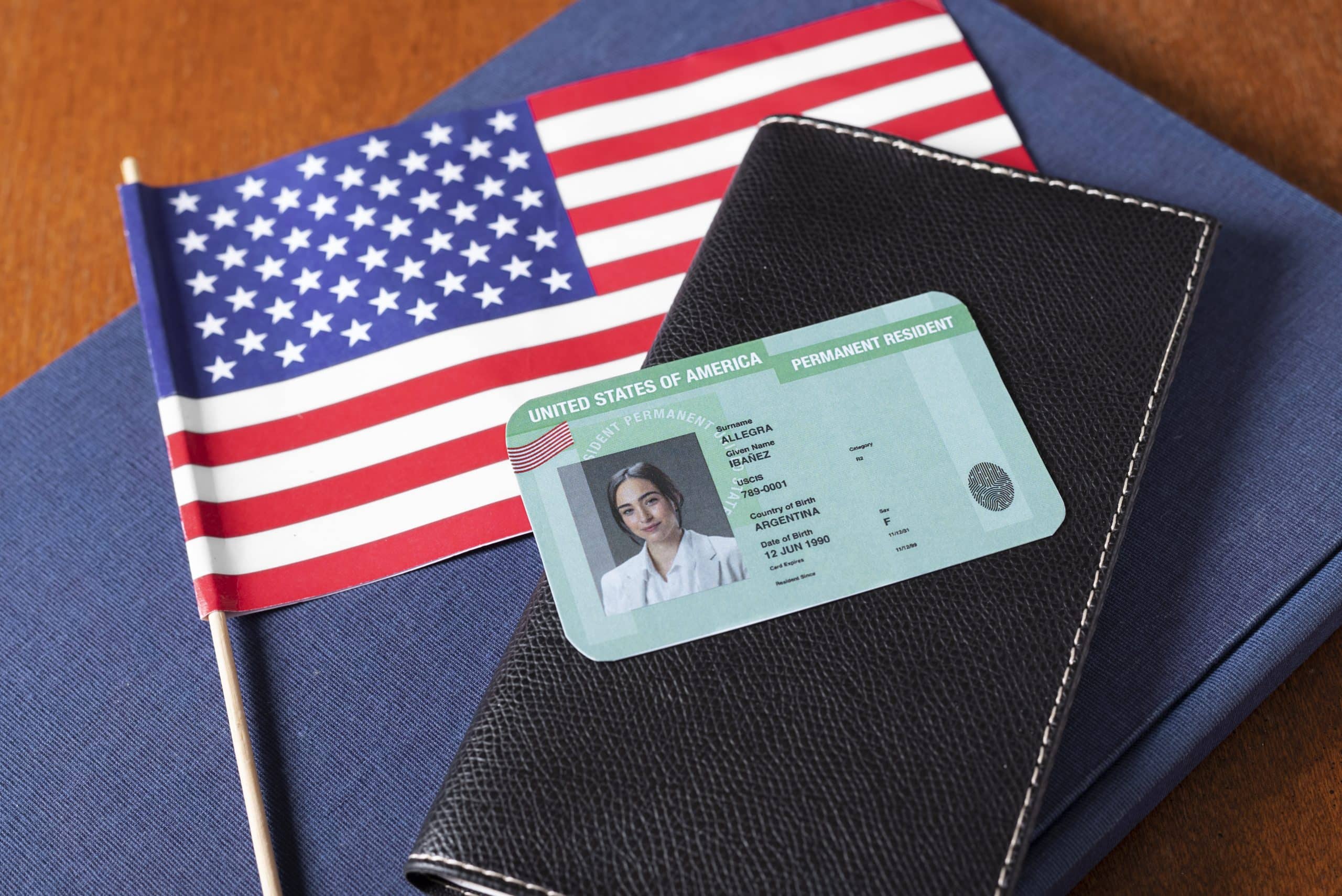Are you dreaming of living and working in the land of opportunities? Look no further than this ultimate step-by-step guide to obtaining your Green Card, the key to unlocking the American Dream. Whether you’re an aspiring professional, a skilled worker, or a family member of a U.S. citizen, this article will walk you through the process and requirements of obtaining permanent residency in the United States.
From understanding the various categories and eligibility criteria to navigating the complex paperwork and interviews, this guide covers it all. We’ve done the research, so you don’t have to. You’ll find valuable insights, expert tips, and real-life success stories that will inspire and motivate you on your journey towards a better future.
Our goal is to empower you with the knowledge and confidence you need to navigate the immigration system, minimize roadblocks, and maximize your chances of securing a Green Card. It’s time to turn your American Dream into reality. Let’s get started on this remarkable journey together.
Understanding the Green Card and its advantages
A Green Card, officially known as a Permanent Resident Card, is a document that grants an individual the right to live and work permanently in the United States. It provides numerous benefits, including the ability to legally work in the U.S., access to social services and benefits, protection under U.S. laws, and the opportunity to apply for U.S. citizenship after meeting certain requirements.
Obtaining a Green Card opens up a world of opportunities. It allows you to pursue your career goals, start a business, access quality education and healthcare, and enjoy the many freedoms and privileges that come with permanent residency.
To be eligible for a Green Card, you must meet specific criteria set by the U.S. Citizenship and Immigration Services (USCIS). These criteria vary depending on the category under which you are applying, such as employment-based, family-based, or through the diversity visa lottery. Understanding the eligibility criteria is crucial to determine your pathway to permanent residency.
Eligibility criteria for obtaining a Green Card
The eligibility criteria for obtaining a Green Card vary depending on the category you fall under. Let’s explore the main categories and their respective requirements:
1. Employment-based Green Card: To qualify for an employment-based Green Card, you must have a job offer from a U.S. employer who is willing to sponsor your application. The employer must demonstrate that there are no qualified U.S. workers available for the position and that hiring you will not negatively impact the U.S. job market. Additionally, you may be required to meet education, work experience, or extraordinary ability criteria.
2. Family-based Green Card: If you have a close family member who is a U.S. citizen or a Green Card holder, they may be able to sponsor you for a family-based Green Card. Immediate relatives, such as spouses, parents, and unmarried children under 21 years old, have the highest priority. Other close relatives, such as siblings and married children, may also be eligible but may face longer wait times due to visa quotas.
3. Diversity Visa Lottery: The diversity visa lottery, also known as the Green Card lottery, is a program that provides a limited number of Green Cards to individuals from countries with historically low immigration rates to the United States. To participate, you must meet education or work experience requirements and be a citizen of an eligible country. The lottery is conducted once a year, and winners are randomly selected.
By understanding the eligibility criteria for each category, you can determine which pathway is most suitable for your situation. Each category has its own unique requirements and application process, which we’ll explore in detail in the following sections.
Different paths to obtaining a Green Card – employment-based, family-based, and diversity visa lottery
There are three main paths to obtaining a Green Card: employment-based, family-based, and through the diversity visa lottery. Each path has its own set of requirements and procedures. Let’s delve into each path to help you understand the options available to you.
Employment-based Green Card
If you are pursuing a Green Card through employment, here is a step-by-step guide to help you navigate the process:
1. Secure a job offer: Find a U.S. employer who is willing to sponsor your Green Card application. The employer must be willing to go through the labor certification process to demonstrate the need for a foreign worker.
2. File a PERM labor certification: The employer will need to file a Program Electronic Review Management (PERM) labor certification with the U.S. Department of Labor. This process requires the employer to advertise the job and demonstrate that there are no qualified U.S. workers available.
3. Submit Form I-140: Once the labor certification is approved, the employer can proceed with filing Form I-140, Immigrant Petition for Alien Worker, with U.S. Citizenship and Immigration Services (USCIS). This form establishes the basis for your eligibility for a Green Card.
4. Wait for a priority date: The priority date is the date on which the PERM labor certification or Form I-140 is filed. The priority date determines your place in the queue for a Green Card. Depending on the preference category, there may be a waiting period before a visa number becomes available.
5. File Form I-485: When a visa number becomes available, you can file Form I-485, Application to Register Permanent Residence or Adjust Status, to adjust your status to that of a permanent resident. This form includes biographic information, background checks, and medical examinations.
6. Attend an interview: USCIS may schedule an interview to review your application and ask you questions about your eligibility for a Green Card. It is important to prepare for the interview by gathering all necessary documents and practicing common interview questions.
7. Receive your Green Card: If your application is approved, you will receive your Green Card, which grants you permanent residency in the United States. Congratulations, you have successfully obtained your Green Card!

Step-by-step process for obtaining a Green Card through family sponsorship
If you have a close family member who is a U.S. citizen or a Green Card holder, they may be able to sponsor you for a family-based Green Card. The family-based Green Card process involves the following steps:
1. Petition by U.S. Citizen or Green Card Holder: The sponsoring family member must file Form I-130, Petition for Alien Relative, with the USCIS. This form establishes the qualifying relationship between the sponsor and the beneficiary.
2. Priority Date: Similar to the employment-based Green Card, the USCIS assigns a priority date to the Form I-130 based on the category and the beneficiary’s country of birth. The priority date determines the applicant’s place in the visa queue.
3. Adjustment of Status or Consular Processing: Once the priority date becomes current, the applicant can proceed with either adjustment of status or consular processing, as explained in the employment-based section.
Diversity Visa Lottery
If you are pursuing a Green Card through the diversity visa lottery, here is a step-by-step guide to help you navigate the process:
1. Check your eligibility: Make sure you were born in an eligible country and possess at least a high school education or equivalent. The eligibility criteria can change from year to year, so it is important to check the U.S. Department of State’s official website for the latest information.
2. Submit an entry: During the registration period, submit an entry online through the Electronic Diversity Visa (E-DV) website. The entry requires providing personal information, including your name, date of birth, and passport details.
3. Receive a confirmation number: After submitting your entry, you will receive a confirmation number. Keep this number safe, as it is required to check the status of your entry.
4. Check the results: The results of the diversity visa lottery are usually announced the following year. You can check the status of your entry on the E-DV website using your confirmation number. If you are selected, congratulations! You can proceed with the Green Card application process.
5. File Form DS-260: If selected, you must complete Form DS-260, Online Immigrant Visa and Alien Registration Application. This form includes biographic information, background checks, and details about your eligibility for a Green Card.
6. Attend an interview: The U.S. Department of State will schedule an interview at the U.S. embassy or consulate in your home country. During the interview, you will be asked questions about your eligibility for a Green Card and may be required to provide additional documentation.
7. Receive your Green Card: If your application is approved, you will receive your Green Card, granting you permanent residency in the United States. Celebrate, you have successfully obtained your Green Card!
Common challenges and pitfalls in the Green Card application process
While obtaining a Green Card is an exciting and life-changing endeavor, it is not without its challenges and pitfalls. Here are some common issues that applicants may encounter during the application process:
1. Delays and backlogs: Depending on the category you are applying under, there may be significant waiting periods due to visa number limitations. It is important to stay informed about the current processing times and be prepared for potential delays.
2. Complex paperwork: The Green Card application process involves filling out numerous forms, gathering supporting documents, and providing evidence of eligibility. It can be overwhelming, but attention to detail is crucial to avoid unnecessary delays or rejections.
3. Ineligibility issues: Some applicants may discover that they are ineligible for a Green Card due to various reasons, such as criminal history, immigration violations, or health-related issues. It is essential to consult with an immigration attorney or a reputable immigration service to assess your eligibility before starting the application process.
4. Interview preparation: The interview is a critical part of the Green Card application process. It is important to prepare thoroughly by reviewing your application, gathering the necessary documents, and practicing potential interview questions. Lack of preparation can lead to unnecessary anxiety or even a denial of your application.
Tips for a successful Green Card application
To increase your chances of a successful Green Card application, consider the following tips:
1. Start early: The Green Card application process can be lengthy, so it is advisable to start as early as possible. This will give you ample time to gather the necessary documents, address any issues, and prepare for potential delays.
2. Stay organized: Create a system to keep track of all the documents, forms, and deadlines associated with your Green Card application. This will help you stay organized and ensure that you submit everything on time.
3. Seek professional assistance: Consider working with an immigration attorney or a reputable immigration service to guide you through the application process. They can provide expert advice, help you avoid common pitfalls, and increase your chances of success.
4. Double-check your application: Before submitting your Green Card application, carefully review all forms and supporting documents to ensure accuracy and completeness. Any mistakes or omissions can lead to delays or even a denial of your application.
5. Prepare for the interview: If you are selected for an interview, take the time to prepare by reviewing your application, gathering the necessary documents, and practicing potential interview questions. Confidence and thorough preparation can make a significant difference in the outcome of your interview.






